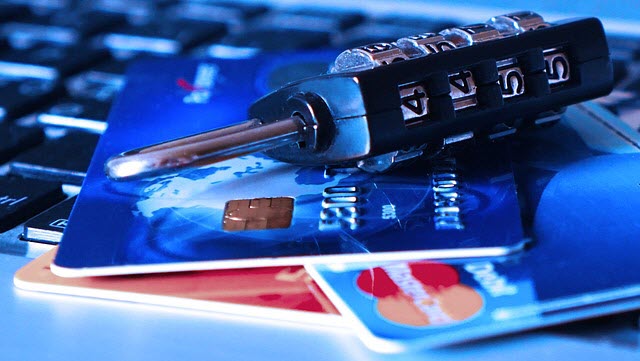Pay attention to your bank’s messages. It might save you from a credit card fraud

In times where digital transactions have become the norm, credit card fraud remains a significant threat to consumers’ financial security. Criminals constantly devise new ways to exploit vulnerabilities and steal sensitive information. However, by staying vigilant and paying close attention to bank messages, you can effectively protect yourself from falling victim to credit card fraud.
Understanding Credit Card Fraud
Credit card fraud encompasses various malicious activities that involve the unauthorized use of your credit card information. Identity theft, where criminals obtain your personal details to open new accounts or make purchases in your name, is a common form of fraud. Card-not-present fraud occurs when someone uses your credit card number for online or phone transactions without possessing the physical card. Phishing attacks, where scammers trick you into revealing sensitive information through fake emails or websites, are also prevalent.
The Role of Bank Messages
Banks employ multiple channels to communicate with customers about potential fraud, including SMS, email, and app notifications. These messages serve as an early warning system, allowing you to take immediate action to protect your accounts. By promptly responding to alerts, you can prevent further unauthorized transactions and minimize financial losses.
Real-Time Transaction Alerts
One of the most effective ways to catch credit fraud is through real-time transaction alerts. Many banks offer the option to receive instant notifications whenever your credit card is used. These alerts can be sent via text message or push notifications on your smartphone. By enabling this feature, you can quickly identify any unauthorized activity and report it to your bank immediately.
Suspicious Activity Notifications
Banks also send alerts for unusual transactions that deviate from your typical spending patterns. For example, if a large purchase is made in a different country or if multiple transactions occur within a short period, your bank may flag these activities as suspicious. Receiving notifications for such transactions allows you to verify their legitimacy and take appropriate action if necessary.
Common Scams Targeting Credit Card Users
Scammers employ various tactics to obtain your credit card information. Phishing emails are a common method, where fraudsters impersonate legitimate companies or banks to trick you into providing your details. These emails often contain urgent messages or tempting offers, urging you to click on a link and enter your information on a fake website.
Fake bank calls are another prevalent scam. Criminals may pose as representatives from your bank, claiming that there is an issue with your account. They may ask for your credit card number, CVV, or online banking credentials to “verify” your identity. Remember, legitimate banks will never request sensitive information over the phone.
Social engineering tactics, such as pretexting or baiting, are also used to manipulate victims into revealing their credit card details. Scammers may create convincing stories or offer attractive rewards to gain your trust and extract information.
Best Practices for Monitoring Bank Messages
To effectively monitor bank messages and protect yourself from credit card fraud, consider the following best practices:
Enable Alerts and Notifications
Transaction Alerts: Receive instant notifications for every credit card transaction
Suspicious Activity Alerts: Get alerted for unusual transactions or spending patterns
Large Purchase Alerts: Set a threshold and receive notifications for purchases exceeding that amount
International Transaction Alerts: Be notified when your card is used in a different country
By enabling these alerts, you can stay informed about your account activity and quickly identify any unauthorized transactions.
Verify Communication Sources
When receiving messages claiming to be from your bank, always verify the source before taking any action. Legitimate banks will never ask for sensitive information via email or text message. If you receive a suspicious message, contact your bank directly using the official contact numbers provided on their website or the back of your credit card.
Regularly Review Account Statements
In addition to monitoring bank messages, make it a habit to regularly review your credit card statements. Carefully examine each transaction and look for any unfamiliar or unauthorized charges. If you spot any discrepancies, report them to your bank immediately.
What to Do if You Suspect Fraud
If you suspect that you have fallen victim to credit card fraud, take the following steps:
Contact your bank immediately: Call the dedicated fraud hotline or customer service number provided by your bank. Report the suspected fraudulent activity and provide any relevant details.
Freeze or cancel your card: Request your bank to freeze or cancel your credit card to prevent further unauthorized transactions. Your bank will typically issue you a new card with a different number.
Review your account statements: Carefully examine your credit card statements for any additional unauthorized charges. Make a list of all fraudulent transactions to provide to your bank and law enforcement.
File a police report: If you have suffered significant financial losses due to fraud, consider filing a police report. This documentation can be helpful when disputing charges with your bank or credit bureaus.
Monitor your credit report: Regularly check your credit report for any suspicious activities or new accounts opened in your name. You are entitled to one free credit report from each of the major credit bureaus annually.
Case Study: Quick Action Saves Victim from Credit Card Fraud on Dussehra
This post is based on a true incident faced by a friend last week. The story is developing and will be updated when I receive more information about it.
On 30th September, when most of us were enjoying the festivities of Dussehra, some twisted minds were at work. My friend (name not revealed in the interest of his privacy) received a message from his bank early in the morning. The message said that an amount of Rs. 2/- has been deducted from his credit card (bank’s name not revealed). This aroused suspicion because he never carries the card nor does he make transactions of such a small amount. He acted immediately and called up his credit card issuing bank.
And while he was on the call with the bank’s representative, he received another message informing him about a deduction of Rs. 5,500/- from the same card. He notified the customer care representative about this who blocked the card soon after. The transaction was put on hold (as a fraudulent transaction) and my friend was assured that the amount won’t be released until further investigation.
As a necessary measure, my friend has filed an FIR in his local police station and is following up with the bank on this case. One good thing here was, it was a credit and not a debit card. When you use a credit card, the merchant does not receive the money immediately which is just the opposite in case of a debit card.
Key Takeaways from the Credit Card Fraud Incident
So, what do we learn from this incident of credit card fraud?
It is important that you check all messages you receive from your bank.
For any unauthorized transaction in your bank account, even if it’s as low as Rs. 1/-, call up your bank immediately.
Cancel cards that you do not use anymore.
Check your bank statements regularly.
If you shop or bank online on your laptop or desktop, ensure it is protected by an antivirus.
Never click on links or download attachments received in emails received from unknown, unwanted, and especially unexpected sources (even if the sender looks familiar).
Essential Features to Look for in Your Antivirus Software
Ensure your antivirus has these features among others:
Anti-keylogger (keylogger is a malicious software that steals whatever information you type on your keyboard)
Anti-phishing (blocks fake websites that steal confidential information such as net banking login ID and passwords)
Web Security (blocks websites hiding malware)
Safe Banking (protects your money and confidential information while you are banking or shopping online)
Stay Protected with Quick Heal
In the fight against credit card fraud, vigilance is key. Remember, credit card fraud protection is a shared responsibility between you and your bank. By staying informed and taking proactive measures, you can significantly reduce the risk of falling victim to fraudulent schemes.
Quick Heal Total Security offers advanced features like card fraud detection and real-time alerts to safeguard your financial transactions. Stay vigilant, monitor your bank messages closely, and take immediate action if you suspect any fraudulent activity.

No Comments, Be The First!